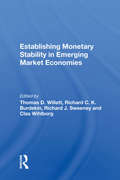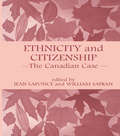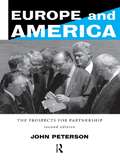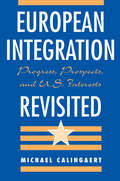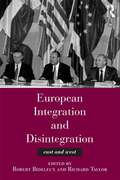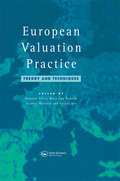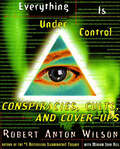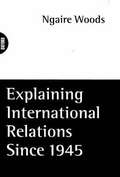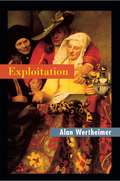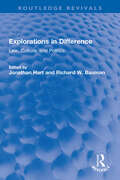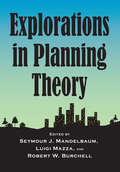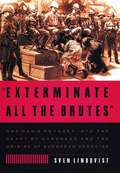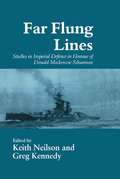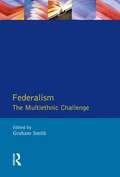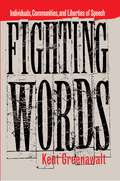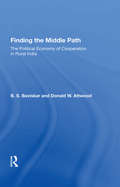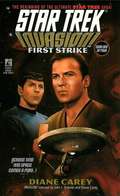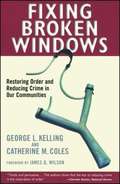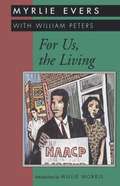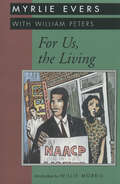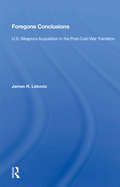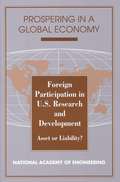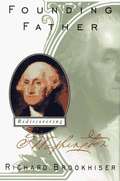- Table View
- List View
Establishing Monetary Stability In Emerging Market Economies
by Clas Wihlborg Richard J. Sweeney Thomas D. Willett Richard C. K. BurdekinThere has been fierce debate about the optimal sequencing of economic reforms in emerging market economies. Many economists argue that for market-oriented systems to operate effectively, a reasonable degree of monetary stability is necessary. Rampant inflation, a common challenge for emerging economies, greatly reduces the chances that market-oriented reforms will be successful. In this comprehensive volume, a group of policy-oriented economists from North America, Europe, and the former Soviet Union explore the causes of monetary instability in reforming economies and evaluate alternative institutional mechanisms designed to reduce inflationary pressures. Considering the latest theoretical and empirical research–as well as the experiences of former Communist countries, including Russia and the erstwhile Soviet republics–the contributors view inflation as a political issue and make a case for the creation of strong political institutions. They argue that although government actions that stimulate inflation tend to have low costs or even benefits in the sort run, they impose heavy costs on the economy in the longer term. Consequently, there is a strong need to develop institutional mechanisms to help ensure that decision makers place appropriate emphasis on the long-run consequences of policy actions.
Ethnicity and Citizenship: The Canadian Case (Routledge Studies in Nationalism and Ethnicity)
by William Safran Jean LaponceExamining past and present policies on immigration, current arguments regarding the evolution of the Canadian constitutional system and the continuing search for new definitions of citizenship; this book looks at the components of citizenship in Canada and the diversity of attitudes.
Europe and America: The Prospects for Partnership
by John PetersonThe conflict in Bosnia, disputes within the new World Trade Organizatiion and debates about NATO enlargement all illustrate a single point: no relationship is more important in determining the state of international relations than the alliance between Europe and America. Contrary to accepted wisdom, John Peterson argues that the end of the Cold War actually enhances the prospects for partnership between the United States and the European Union. Completely updated, this book offers a clear and penetrating analysis of the problems and opportunities facing the transatlantic alliance.
European Integration Revisited: Progress, Prospects, And U.s. Interests
by Michael CalingaertIn this fresh and timely account, Michael Calingaert explores the successes and failures of European economic and political integration, analyzes the factors that will determine its future course, and outlines the directions the European Union is moving in as it approaches the 21st century. Assessing U.S. interests affected by European integration, Calingaert recommends policies for the United States to consider in the face of an increasingly consolidated Europe. With its broad coverage and readable synthesis of a wealth of detailed information, this book will be of interest to students, scholars, and policymakers alike.
European Integration and Disintegration: East and West
by Richard Taylor Robert BideleuxEurope has changed radically since 1989 and continues to change at great speed. This book deals with the principle problems and challenges confronting Europe in the aftermath of the Cold War and the collapse of European communism.Whilst endeavouring to strike a balance between East, West, North and South, the volume is more concerned with the changing political, economic and cultural morphology of Europe, and of the relations within it, than with the formal institutional arrangements of the European Community and its successor, the European Union. There are already numerous books on the institutional development of the EU, but relatively few with a wider compass and institutional interpretations of European integration.The book shows that the study of European integration should be taken in the round, avoiding a narrow and self-centered concern with the development of the 'lesser Europe' of the EU. It demonstrates that integration should be seen as neither an inexorable predetermined process, nor as an automatic consequence of high levels of economic interdependence, but rather as something that proceeds in fits and starts and sometimes suffers reverses.
European Valuation Practice: Theory and Techniques
by A. Adair M.L. Downie S. McGreal G. VosThe variability of valuation practice within Europe is perceived as a problem within the globalization of property. This edited textbook examines the practice of real estate valuation in selected countries in Europe. The focus is on countries with well developed real estate markets in which both international and indigenous investors are active. The book is aimed at real estate professionals, financiers, institutional advisers, property researchers and students who require a greater understanding of comparative property appraisal techniques applied across Europe.
Everything Is Under Control: Conspiracies, Cults, and Cover-ups
by Robert Anton Wilson Miriam Joan HillEverything Is under Control is Wilson's -to-Z of conspiracy theories-real, half-real and completely imaginary. Highly cross-referenced and written in a journalistic tone, it ioncludes fascinating information on Area 51, the Bermuda Triangle, Naom Chomsky, Crying of Lot 49, "Bob" Dobbs, Elders of Zion, the federal reserve, Holocaust deniers, Iran-Contra, JFK, Knights Templar, McCarthy, Norplant, Operation Mind Control, Pearl Harbor, UFO Abductiion, Wicca, and more.
Everything for Sale: The Virtues and Limits of Markets
by Robert KuttnerThere's a battle raging inside and outside the halls of Congress for the economic hearts and minds of America. "Reduce the size of big government! Less regulation! Privatization! Market economy!"
Explaining International Relations Since 1945
by Ngaire WoodsThe book is a collection of 16 articles on international relations by leading authors in the field. It discusses new theoretical concepts with numerous examples taken from world events. The effectiveness of the UN, NATO, SEATO, the EEC, etc. is discussed in detail.
Exploitation
by Alan WertheimerWhat is the basis for arguing that a volunteer army exploits citizens who lack civilian career opportunities? How do we determine that a doctor who has sex with his patients is exploiting them? In this book, Alan Wertheimer seeks to identify when a transaction or relationship can be properly regarded as exploitative--and not oppressive, manipulative, or morally deficient in some other way--and explores the moral weight of taking unfair advantage. Among the first political philosophers to examine this important topic from a non-Marxist perspective, Wertheimer writes about ordinary experience in an accessible yet philosophically penetrating way. He considers whether it is seriously wrong for a party to exploit another if the transaction is consensual and mutually advantageous, whether society can justifiably prohibit people from entering into such a transaction, and whether it is wrong to allow oneself to be exploited. Wertheimer first considers several contexts commonly characterized as exploitive, including surrogate motherhood, unconscionable contracts, the exploitation of student athletes, and sexual exploitation in psychotherapy. In a section outlining his theory of exploitation, he sets forth the criteria for a fair transaction and the point at which we can properly say that a party has consented. Whereas many discussions of exploitation have dealt primarily with cases in which one party harms or coerces another, Wertheimer's book focuses on what makes a mutually advantageous and consensual transaction exploitive and analyzes the moral and legal implications of such exploitation.
Explorations in Difference: Law, Culture, and Politics (Routledge Revivals)
by Jonathan Hart Richard W. BaumanFirst published in 1996, Explorations in Difference explores how contemporary debates over identity and difference come into play within the workings of cultural, legal, and political institutions. The book brings together a variety of perspectives on the meanings and implications of difference in the context of postmodern theory. It is divided into two parts: ‘Theoretical Accounts’, which establishes a context for postmodern inquiries into difference, and ‘Instances’, which provides application to particular issues. Highly interdisciplinary, Explorations in Difference continues to have lasting relevance and will appeal to those with an interest in postmodern difference and its implications.
Explorations in Planning Theory
by Seymour J. Mandelbaum Luigi Mazza Robert W. BurchellWhat is this thing called planning? What is its domain? What do planners do? How do they talk? What are the limits and possibilities for planning imposed by power, politics, knowledge, technology, interpretation, ethics, and institutional design? In this comprehensive volume, the foremost voices in planning explore the foundational ideas and issues of the profession.Explorations in Planning Theory is an extended inquiry into the practice of the profession. As such, it is a landmark text that defines the field for today's planners and the next generation. As Seymour J. Mandelbaum notes in the introduction, ""the shared framework of these essays captures a pervasive interest in the behavior, values, character, and experience of professional planners at work.""All of the chapters in this volume are written to address arguments that are important in the community of planning theoreticians and are crafted in the language of that community. While many of the contributors included here differ in their styles, the editors note that students, experienced practitioners, and scholars of city and regional planning will find this work illuminating and helpful in their research.
Exterminate All the Brutes: One Man's Odyssey into the Heart of Darkness and the Origins of European Genocide
by Joan Tate Sven LindqvistChosen as one of the New Internationalist's best books of the year, "Exterminate All the Brutes" is a searching examination of Europe's dark history in Africa and the origins of genocide. Using Joseph Conrad's "Heart of Darkness" as his point of departure, Sven Lindqvist takes us on a haunting tour through the colonial past, interwoven with a modern-day travelogue. By retracing the steps of European explorers, missionaries, politicians, and historians in Africa from the late eighteenth century onward, the author exposes the roots of genocide in Africa via his own journey through the Saharan desert.
Far-flung Lines: Studies in Imperial Defence in Honour of Donald Mackenzie Schurman (Cass Series: Naval Policy and History #Vol. 2)
by Keith Neilson Greg KennedyThese studies show how the British Empire used its maritime supremacy to construct and maintain a worldwide defence for its imperial interests. They rebut the idea that British defence policy in the late 19th and early 20th centuries was primarily concerned with the balance of power in Europe.
Federalism: The Multiethnic Challenge
by Graham SmithThis book provides a comprehensive and detailed examination of the successes and failures of federalism in a diverse range of multi-ethnic polities and societies.It offers excellent coverage of the experiences of a wide range of contemporary states with specially commissioned contributions from established authorities.An introductory chapter introduces the reader to the nature of federations, the political philosophies that underpin federalism, the characteristics of federal formations, and highlights some of the theories as to why this system of government has failed in some cases to provide ethno-regional stability. A concluding chapter draws upon the findings and examines the prospects for federalism in the light of the acceleration towards greater economic interdependency and local political fragmentation, in the post-Cold War world.
Fighting Words: Individuals, Communities, and Liberties of Speech
by Kent GreenawaltShould "hate speech" be made a criminal offense, or does the First Amendment oblige Americans to permit the use of epithets directed against a person's race, religion, ethnic origin, gender, or sexual preference? Does a campus speech code enhance or degrade democratic values? When the American flag is burned in protest, what rights of free speech are involved? In a lucid and balanced analysis of contemporary court cases dealing with these problems, as well as those of obscenity and workplace harassment, acclaimed First Amendment scholar Kent Greenawalt now addresses a broad general audience of readers interested in the most current free speech issues.
Finding The Middle Path: The Political Economy Of Cooperation In Rural India
by B. S. BaviskarSoviet-style socialism has failed; but in Russia, China, and India the transition to capitalism has proven hazardous. Elsewhere, capitalism itself appears to be in crisis, often failing to meet the fundamental needs of workers, small farmers, and even the middle classes. Clearly, the world needs enterprises that are both economically efficient and
First Strike: Invasion! #1 (Star Trek: Vanguard #79)
by Shlomo NakdimonLong ago, before the days of myth and legend, our worlds belonged to them. Now they want them back…Captain Kirk is stunned when the Federation receives an urgent plea for help—from the Klingon Empire. A mysterious starship has invaded Klingon space and resisted all their efforts to destroy it. Establishing contact with the stranger’s ship, Kirk discovers that it is only the vanguard of a vast alien fleet obsessed with conquering the Klingons, the Federation, the Romulans, and all who dwell in the space that was once their own.The Invasion has begun…
Fiscal Reforms That Work
by C. John Mcdermott Robert F. WescottA report from the International Monetary Fund.
Fixing Broken Windows: Restoring Order and Reducing Crime in Our Communities
by George L. Kelling Catherine M. ColesBased on a groundbreaking theory of crime prevention, this practical and empowering book shows how citizens, business owners, and police can work together to ensure the safety of their communities. George Kelling, one of America’s leading criminologists, has proven the success of his method across the country, from the New York City subways to the public parks of Seattle. Here, Kelling and urban anthropologist and lawyer Catherine Coles demonstrate that by controlling disorderly behavior in public spaces, we can create an environment where serious crime cannot flourish, and they explain how to adapt these effective methods for use in our own homes and communities.
For Us, The Living
by William Peters Myrlie B. EversIn 1967, when this brave book was first published, Myrlie Evers said, "Somewhere in Mississippi lives the man who murdered my husband. " Medgar Evers died in a horrifying act of political violence. Among both blacks and whites the killing of this Mississippi civil rights leader intensified the menacing moods of unrest and discontent generated during the civil rights era. His death seemed to usher in a succession of political shootings--Evers, then John Kennedy, then Martin Luther King, Jr. , then Robert Kennedy. At thirty-seven while field secretary for the NAACP, Evers was gunned down in Jackson, Mississippi, during the summer of 1963. Byron De La Beckwith, an arch segregationist charged with the crime, was released after two trials with hung juries. In 1994, after new evidence surfaced thirty years later, Beckwith was arrested and tried a third time. Medgar Evers's widow saw him convicted and jailed with a life sentence. In For Us, the Living this extraordinary woman tells a moving story of her courtship and of her marriage to this heroic man who learned to live with the probability of violent death. She describes her husband's unrelenting devotion to the quest of achieving civil rights for thousands of black Mississippians and of his ultimate sacrifice on that hot summer night. With this reprinting of her poignant yet painful memoir, a book long out of print comes back to life and underscores the sacrifice of Medgar Evers and his family. Introduced in a reflective essay written by the acclaimed Mississippi author Willie Morris, this account of Evers's professional and family life will cause readers to ponder how his tragic martyrdom quickened the pace of justice for black people while withholding justice from him for thirty years. Since the conviction of Beckwith in a dramatic and historical trial in a Mississippi court there has been renewed acclaim for Evers. One speculates that, had he lived, he might have attained even more for the equality of African Americans in national life.
For Us, the Living (Banner Books)
by Myrlie Evers WilliamsIn 1967, when this brave book was first published, Myrlie Evers said, “Somewhere in Mississippi lives the man who murdered my husband.” Medgar Evers died in a horrifying act of political violence. Among both blacks and whites, the killing of this Mississippi civil rights leader intensified the menacing moods of unrest and discontent generated during the civil rights era. His death seemed to usher in a succession of political shootings—Evers, then John Kennedy, then Martin Luther King, Jr., then Robert Kennedy. At thirty-seven while field secretary for the NAACP, Evers was gunned down in Jackson, Mississippi, during the summer of 1963. Byron De La Beckwith, an arch segregationist charged with the crime, was released after two trials with hung juries. In 1994, after new evidence surfaced thirty years later, Beckwith was arrested and tried a third time. Medgar Evers's widow saw him convicted and jailed with a life sentence. In For Us, the Living this extraordinary woman tells a moving story of her courtship and of her marriage to this heroic man who learned to live with the probability of violent death. She describes her husband's unrelenting devotion to the quest of achieving civil rights for thousands of black Mississippians and of his ultimate sacrifice on that hot summer night. With this reprinting of her poignant yet painful memoir, a book long out of print comes back to life and underscores the sacrifice of Medgar Evers and his family. Introduced in a reflective essay written by the acclaimed Mississippi author Willie Morris, this account of Evers's professional and family life will cause readers to ponder how his tragic martyrdom quickened the pace of justice for black people while withholding justice from him for thirty years. Since the conviction of Beckwith in a dramatic and historical trial in a Mississippi court there has been renewed acclaim for Evers. One speculates that, had he lived, he might have attained even more for the equality of African Americans in national life.
Foregone Conclusions: U.s. Weapons Acquisition In The Post-cold War Transition
by James H. LebovicWith the end of the Cold War and the erosion of the Soviet threat, the United States is reevaluating its defense policy and its acquisition of weapons. James Lebovic shows that, although current military missions are adapted to post-Cold War realities, the self-defeating bias of bureaucrats and military services toward Cold War weaponry is still prevalent. He examines the impact of this bias on the armed services as they assess threat, generate requirements, develop and change weapon concepts, set production rates, and engage in testing. The author asserts that bias compromises service interests and broader military objectives and he offers general policy recommendations to put U.S. weapons acquisition on a more effective track.
Foreign Participation in U.S. Research and Development: Asset or Liability?
by Development Committee on Foreign Participation in U.S. ResearchDuring the past decade, foreign participation in U.S. research and development--through acquisition of R&D-intensive businesses, links with universities, and other arrangements--has expanded rapidly.This emergence of foreign influence has drawn a mixed response--some regard the trend as a positive corollary to the expanding involvement of U.S.-owned companies in national markets abroad. Others consider it a net liability for Americans that often benefits foreign companies and their home economies at U.S. expense.There exists a large gap in expert and public understanding of the drivers, nature, and consequences of foreign participation in the nation's technology enterprise. This volume seeks to close this gap and reviews The nature of R&D activities and how they contribute to economic development. The causes, scope, and nature of foreign involvement in U.S.-based R&D activity and the associated costs, risks, benefits, and opportunities of this trend. The merits and liabilities of policies to regulate foreign R&D participation.
Founding Father: Rediscovering George Washington
by Richard BrookhiserIn this thought-provoking look at George Washington as soldier and statesman, Richard Brookhiser traces the astonishing achievements of Washington's career and illuminates how his character and his values shaped the beginnings of American politics.
